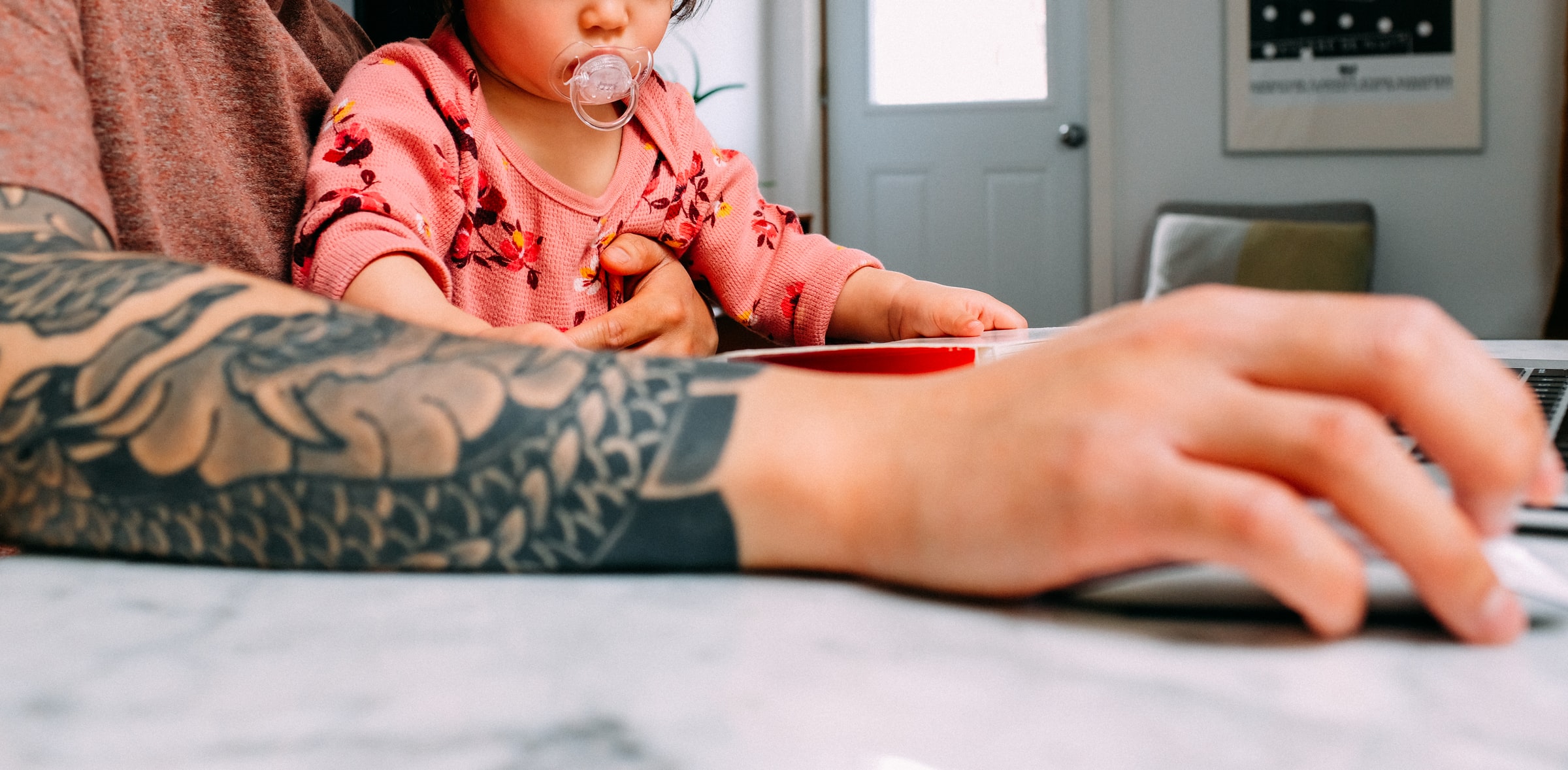Non Dutch and young female academics in particular faced problems during the first lockdown, says research by The Young Academy and the LNVH into the impact of the lockdown.
Academics with children living at home report twice as much loss of research time than academics without children living at home (Foto: Charles Deluvio/Unsplash)
That it was not always easy during the first corona lockdown when the entire education system had to scramble to go online immediately and many parents were put into awkward positions in terms of work and private lives, has already emerged from the many stories, warnings and urgent letters. But academics wanted to know more. What were the effects of the corona crisis on researchers at different levels of the career ladder?
On around 1 September 2020, all 34,000 academics at Dutch universities were sent a questionnaire about the impact of the first corona lockdown. More than 17% (5,920 researchers) filled it in. This was the first sector-wide investigation into the impact of the pandemic.
Stress about the future
The research was carried out by The Young Academy and the Dutch Network of Women Professors (LNVH), which says something about the suspicions of the researchers that it was mostly women and younger academics that were affected. The results partially confirm this.
One quarter of the respondent academics say that they experienced a high degree of stress and fatigue and felt tired and exhausted from their work during the first few months of the pandemic. The highest scores are among the academics with non-Dutch nationalities and the academics that are at the start of their careers. The latter group also say that they are experiencing increasing stress about their future in academia.
‘Avoid the career of certain groups of researchers being stymied‘
Less time for research
During the first lockdown, academics from all job categories saw the time that they could devote to research drop significantly. Forty percent of all academics reported a loss of research time. More than half the doctoral candidates, postdocs and academics in tenure tracks reported corona related delays. They expect that they will not be able to complete their projects on time and/or not meet the requirements of the tenure track.
Academics with children living at home report twice as much loss of research time than academics without children living at home. Academics with young children also reported conflicts in their work-life balance during the lockdown more often than academics without children living at home.
Women with young children
Female academics with young children faced the greatest conflict in trying to combine their professional and childcare obligations. They reported the highest stress levels related to the progress of their research and concerns about their future in academia. Strikingly, these women were nearer the start of their careers and had more temporary positions than their male colleagues with young children. This could mean that the impact of the lockdown on women could be greater than on men, the reporters warn.
The report’s most important conclusion was to avoid the career of certain groups of researchers being stymied by problems brought on by the corona crisis. So do not only look at their research production, but also at the circumstances in which these were done. This is in line with the trend of ‘recognising and valuing’ in academia in which evaluations of academics should be less based on figures.
The researchers will discuss this topic further in an online meeting of the Royal Netherlands Academy of Arts and Sciences in the second of a series of four sessions on the impact of corona on academia.
HOP, Bas Belleman / Delta, Marieke Enter
Do you have a question or comment about this article?
redactie@hogeronderwijspersbureau.nl


Comments are closed.